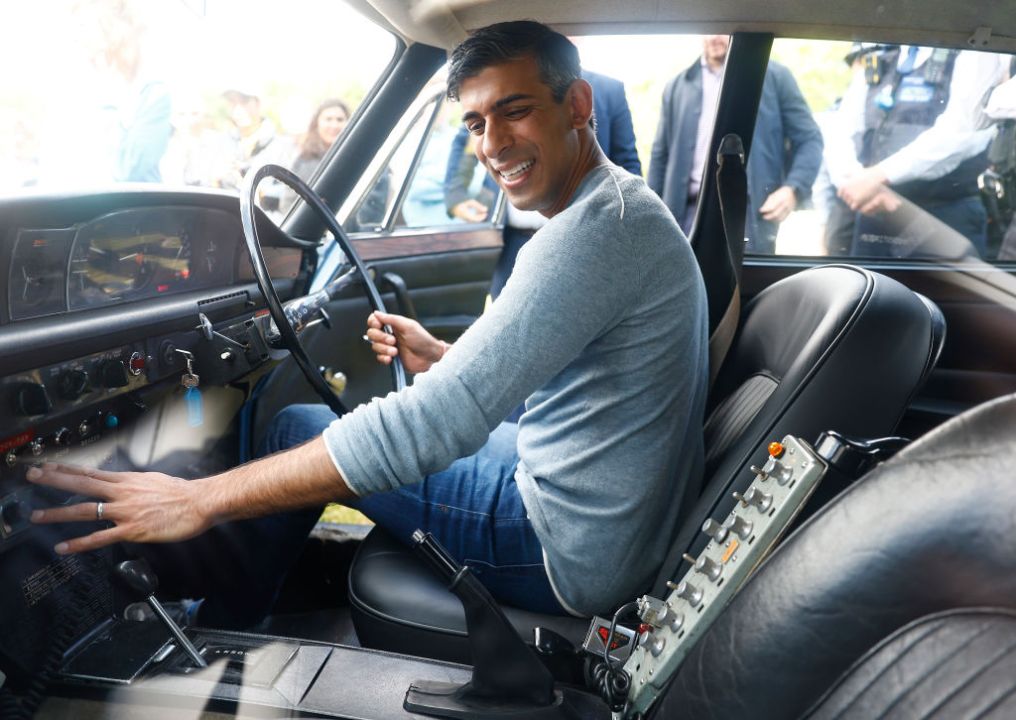The lesson from the Uxbridge by-election was clear to both parties: the public will not accept green policies at any price. Whilst in general, the public support cutting carbon emissions and other forms of pollution – support drifts away fast when people are confronted with measures which threaten to make them poorer and their lives more difficult.
But now Rishi Sunak risks falling into another trap: aligning himself too closely with his party’s Mr Toad tendency. Announcing a Department for Transport review into low traffic neighbourhoods (LTN), the Prime Minister this morning has sided heavily with motorists, declaring ‘the vast majority of people in the country use their cars to get around and are dependent on cars. I just want to make sure people know that I’m on their side in supporting them to use their cars to do all the things that matter to them.’
Rishi Sunak risks falling into another trap
That may serve the Conservatives, up to a point. Trouble is that the public, as on so many issues, do not have consistent views on cars and traffic. People tend to appreciate the right to drive their own car – or at least the 77 percent of households which own one. There are still 5.8 million households which do not have a vehicle. But they tend to be less enthusiastic about the right of other people to use their cars. LTNs are often very popular with local residents – and indeed have been in place in many areas for decades, albeit enforced with simple bollards rather than Orwellian cameras. Cutting off rat-runs, removing commuters’ cars, slowing down vehicles with traffic calming from the streets – these are measures which tend to happen not because a chamber full of mad councillors has decided to impose it for ideological reasons, but because local people – many of them Tory-voting – have lobbied for them. But each scheme, inevitably, has its opponents, too – people who have been used to taking a particular route into town and who are now thwarted.
What has offended so many people about Ulez is its regressive nature and the way it is being enforced with cameras dishing out heavy fines via number plate recognition cameras. Costs have fallen heavily on car dependent people towards the bottom end of the income scale – whose vehicles don’t necessarily spew out more pollution than newer cars, not if they are driven less. People can see that is desperately unfair.
But that doesn’t mean that Sunak should now side firmly with the motorists’ lobby – people who want to drive wherever they like, whenever they like, at whatever speed they like and damn the cyclists and pedestrians who get in their way. That way he will offend a great number of people who appreciate safer, less polluted streets.
The real issue over coming years is going to be the impact of net zero on the cost of living for millions of ordinary people. The switch to electric cars is one of those expenses – even the head of the climate change committee, Chris Stark, is now saying that 2030 might be too early to ban petrol and diesels because the price of electric cars is not coming down as fast as many hoped. Proposed bans on oil and gas boilers threaten to be even more expensive, as does the plan to remove all fossil fuels from the national grid by 2035 (Labour wants to bring this forward to 2030). At the moment we are absolutely dependent on gas power stations to balance intermittent wind and solar. All other possible solutions – battery storage, hydrogen, a worldwide grid etc – threaten to be far, far more expensive.
To boil all green policies down to restrictions on cars and declare an all-out support for motorists would be a big mistake for the Prime Minister. People want to be able to use their cars, and in many cases are heavily reliant upon them. But motorists tend to be pedestrians, cyclists, local residents too – and they also want to be protected from other people’s vehicles.








Comments